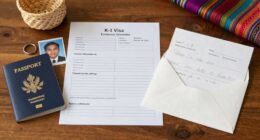Retiring in the Philippines together can be affordable, but it’s important to plan your finances carefully. Healthcare costs are lower than in Western countries, yet private facilities and insurance can add up. Budgeting for your lifestyle, understanding local costs, and exploring healthcare options guarantee you stay protected. Additionally, adjusting to local customs and managing potential expenses will help you enjoy your retirement smoothly. If you keep exploring, you’ll discover how to make the most of your new chapter.
Key Takeaways
- Budget for both public and private healthcare options, including insurance, to manage medical expenses effectively.
- Assess the cost of living, housing, and daily essentials to ensure retirement savings cover your lifestyle needs.
- Understand local currency stability and economic factors influencing expenses and income sources.
- Plan for potential currency exchange fluctuations and include contingency funds for emergencies.
- Explore joint financial planning, such as shared savings or pensions, to secure a stable and comfortable retirement together.

Are you considering retiring abroad? If so, the Philippines might be an excellent choice, but it’s vital to think about the financial aspects carefully. One of the biggest considerations is healthcare costs, which can vary greatly compared to your home country. While healthcare in the Philippines is generally more affordable, it’s essential to understand what’s covered and what isn’t. Public hospitals offer lower-cost services, but they may not match the standards you’re used to. Private healthcare facilities tend to be better equipped and more comfortable, but they can be more expensive. Many retirees choose to supplement their local healthcare with international or travel insurance to avoid unexpected expenses. Planning ahead for healthcare guarantees you won’t be caught off guard by medical costs, giving you peace of mind as you settle into your new life. Understanding the differences between public and private healthcare options, as well as their respective costs, is crucial for making informed decisions.
Cultural integration plays a significant role in making your retirement smooth and enjoyable. Moving to a new country means adapting to different customs, languages, and everyday routines. In the Philippines, you’ll find a warm, welcoming culture with a strong sense of community, which can help ease the transition. Learning some basic Filipino phrases can go a long way in building relationships and showing respect for local traditions. Engaging with local communities and participating in cultural activities can enrich your experience and help you feel more at home. It’s also wise to take into account how well you’ll adapt to the local pace of life, which tends to be more relaxed than in many Western countries. Embracing the local culture can not only enhance your social life but also help you avoid misunderstandings or feelings of isolation.
Financially, integrating into Filipino society might also mean adjusting your expectations regarding expenses. While some costs, like housing and food, are lower, others—such as imported goods or certain healthcare services—can be higher. Budgeting appropriately and understanding the local economic landscape can help you make the most of your retirement funds. Additionally, establishing a steady income stream, whether through savings or international pensions, will be vital for maintaining your lifestyle. Being open-minded and flexible about your new environment can make your transition smoother and more fulfilling. Remember, retiring abroad isn’t just about finances—it’s about creating a new chapter filled with adventure, cultural discovery, and meaningful connections. Proper planning around healthcare costs and cultural integration will guarantee you enjoy your retirement years to the fullest in the Philippines. Gaining a better understanding of local security measures and how to protect yourself can also contribute to a safer and more comfortable retirement experience.
Frequently Asked Questions
What Are the Visa Options for Retirees in the Philippines?
When exploring visa options for retirees in the Philippines, you’ll find retirement visas are popular. The Special Resident Retiree’s Visa (SRRV) offers several benefits, including multiple-entry privileges. To qualify, you must meet specific visa requirements like age, proof of income, and a clean criminal record. These retirement visas simplify your stay, making it easier to enjoy your retirement in the Philippines without worries about visa renewals or restrictions.
How Does the Cost of Living Compare to Other Southeast Asian Countries?
Imagine finding a hidden gem—your dream retirement spot. When you do a cost comparison, the Philippines often shines with affordability, especially compared to other Southeast Asian countries like Singapore or Malaysia. An affordability analysis shows lower living expenses, from housing to food. You can enjoy a comfortable lifestyle without breaking the bank, making the Philippines an attractive choice for retirees seeking both adventure and financial peace of mind.
Are Healthcare Services Affordable and Accessible for Retirees?
You’ll find healthcare services in the Philippines are generally affordable and accessible for retirees. With good medical facilities in major cities, you can access quality care, and health insurance options are available to help cover costs. Many hospitals meet international standards, making it easier to get treatment when needed. Just guarantee you have proper health insurance, and you’ll enjoy reliable healthcare services as you settle into your retirement.
What Are the Tax Implications of Retiring in the Philippines?
When you retire in the Philippines, you should understand the tax implications. You may benefit from tax exemptions on certain income sources, but it is crucial to stay compliant with local laws. You need to report your income accurately to avoid penalties. Additionally, consider how your retirement savings and pensions are taxed, and consult a local tax expert to ensure you’re maximizing benefits while fulfilling your income reporting obligations.
How Can Retirees Open Bank Accounts and Transfer Funds Easily?
Think of opening a bank account in the Philippines like planting a sturdy tree; it’s your financial foundation. You can easily do a bank account setup by visiting local branches or online platforms, providing identification and proof of address. For fund transfer methods, use remittance services, bank wire transfers, or online banking. These tools guarantee your money flows smoothly, making your retirement journey seamless and secure.
Conclusion
So, as you plan your perfect retirement in the Philippines, remember that paradise isn’t just about beaches and sunsets—it’s also about managing your finances wisely. Ironically, what seems like a dream destination can turn into a financial headache if you don’t plan carefully. So enjoy the sunshine, but don’t forget to keep a close eye on your budget. After all, even paradise needs a bit of financial savvy to truly stay paradise.









